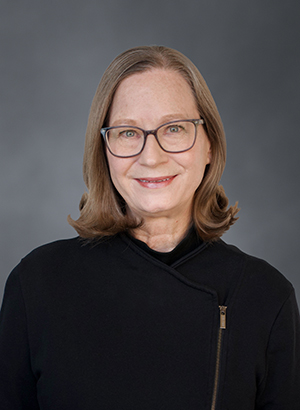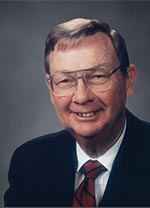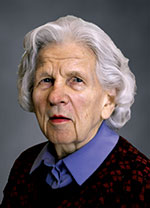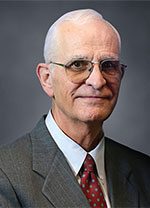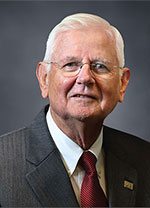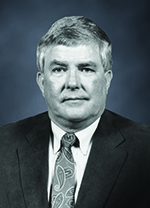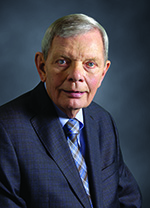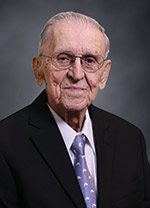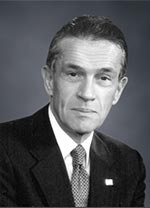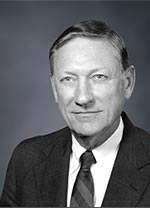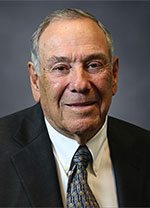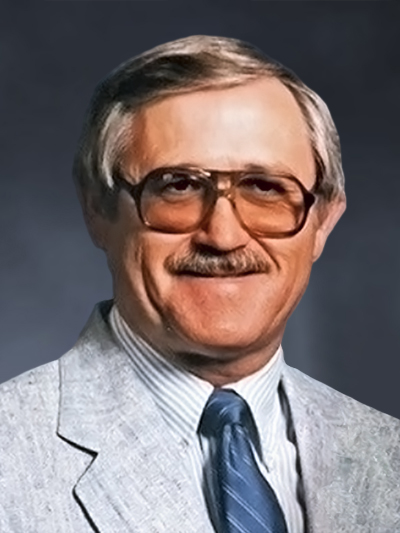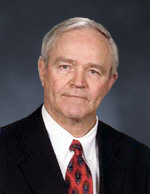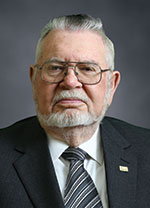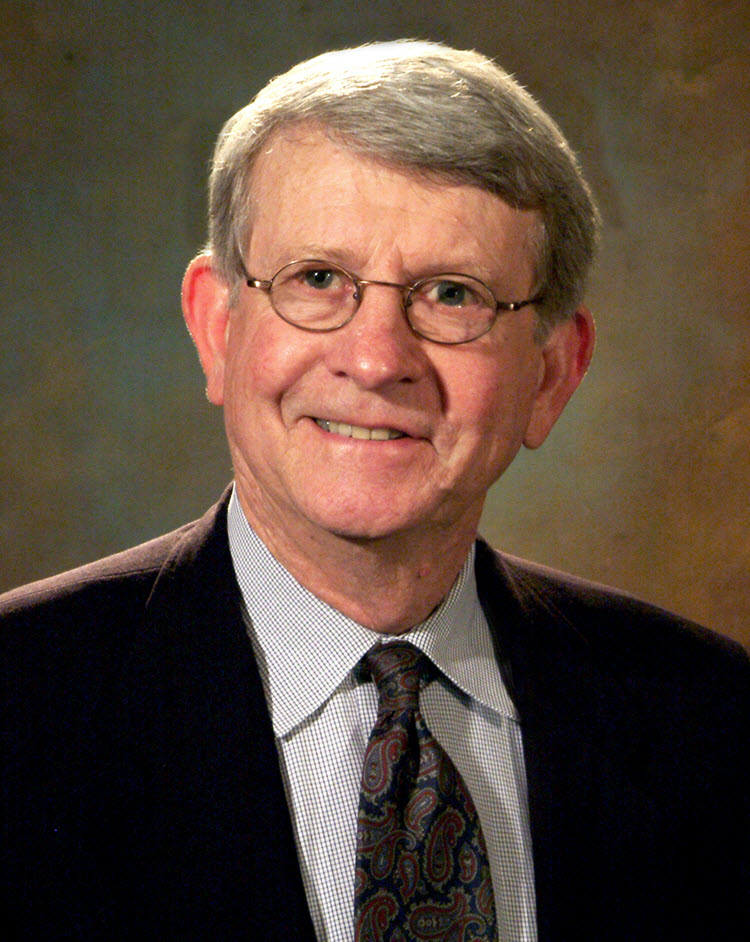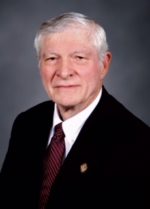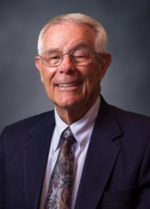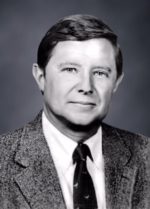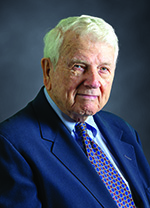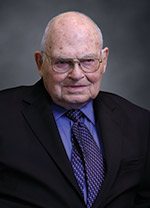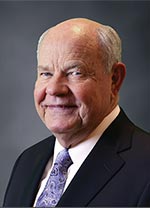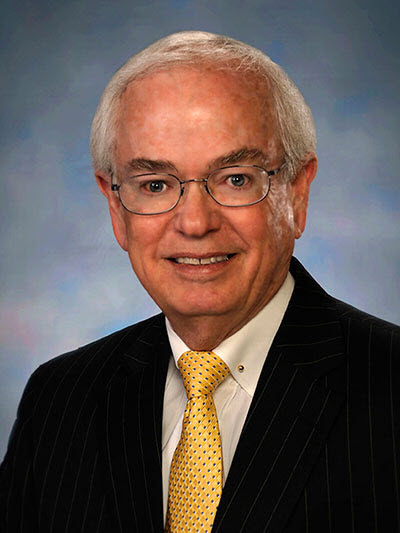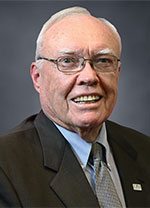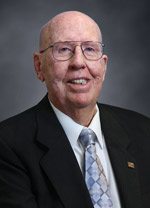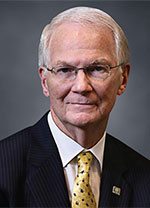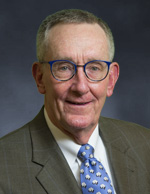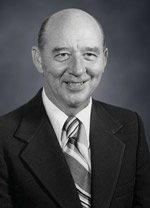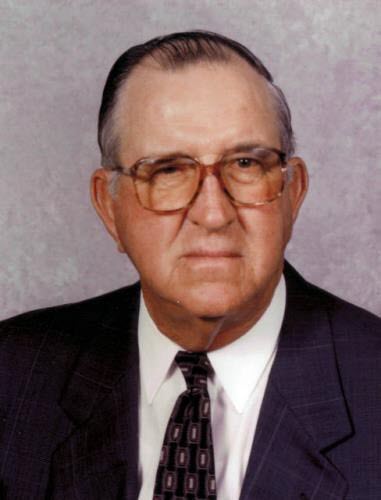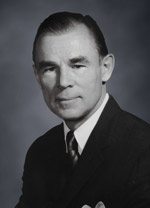Cotton Research & Promotion Program

Recent Inductees:
Texas
Inducted:2025
Dr. Jane Dever is recognized for her leadership in cotton breeding and fiber quality research, and for her career spanning more than four decades across both public and private sectors of the cotton industry.
Prior to joining Clemson University in April 2024 as the director of the Pee Dee Research and Education Center and professor in the Department of Plant and Environmental Sciences, she served as assistant director of the Texas A&M AgriLife Lubbock Research and Extension Center and professor of plant breeding in the Department of Soil and Crop Sciences.
Dr. Dever is an American Society of Agronomy Fellow, a Texas A&M Regents Service Fellow, and a recipient of the Cotton Genetics Research Award. She has also served on federal advisory councils for both the National Genetic Resources and the Foundation for Food and Agricultural Research.
Her prior appointments include global cotton breeding manager for Bayer CropScience; senior research scientist at the cotton-biotechnology firm Biotex; textile engineer at the Plains Cotton Cooperative Association; and head of materials evaluation for the Fiber and Biopolymer Research Institute at Texas Tech University.
A native of Lubbock County, Texas, Dr. Dever grew up on a cotton, wheat, and grain sorghum farm. She holds a B.S. in Textile Engineering, an M.S. in Crop Science, and a Ph.D. in Agronomy from Texas Tech University.
Play
The Cotton Research and Promotion Hall of Fame recognizes and honors individuals who have made significant contributions to the Cotton Research & Promotion Program and to the cotton industry in general.
Dermott, AR
Inducted:2017
William A. “Bill” Baxter has served as a board member of Cotton Council International, a member delegate of the National Cotton Council, and as a director and chairman of the Cotton Board. Baxter has also been the recipient of the “Arkansas Cotton Achievement Award,” and was elected into the Arkansas Agricultural Hall of Fame in 1999. Baxter currently serves as President and Operating Officer of Baxter Land Company.
Talks about how important cotton has been to him and his family.
PlayNew Orleans, LA
Inducted:2019
Dr. Ruth Benerito (deceased) was crucial in leading the development of wrinkle-free cotton during her time as a U.S. Department of Agriculture chemist in the 1960s. Born in New Orleans, Ms. Benerito received degrees from Tulane University and the University of Chicago before beginning her work for USDA in 1953. For her role in developing “wrinkle-free” (durable press, wash-and-wear) cotton, she was inducted into the National Inventors Hall of Fame (2008).
Dr. Benerito’s journey to wrinkle-free cotton is an interesting one.
PlayKeiser, AR
Inducted:2015
It has been said that Dr. Fred Bourland likely understands the cotton plant and how it grows better than any other cotton breeder. This understanding has enabled him to develop a number of plant measurements and techniques, many of which are now being used by other cotton breeders as well as cotton scientists in other disciplines. In addition to developing and releasing more than 80 cotton lines (germplasms and cultivars), Bourland has also cultivated interest and excellence among his students at universities in Arkansas and Mississippi. Notable among Bourland’s developments is combining the desirable characteristics of high yield and early maturity with high quality fiber.
Dr. Bourland discusses his role in the development of new cotton varieties.
PlayLaurinburg, NC
Inducted:2015
North Carolina cotton grower David Burns is an acknowledged leader in the cotton industry. Burns served as Cotton Board Chairman during the integration of importers into the Cotton Research and Promotion Program. Burns’ leadership fostered an easy assimilation of importers onto the Board and maintained a focus on the common goals of the dual constituency.
Burns also served as President, Cotton Council International. Burns is noted for his stewardship at a transitional period in the history of U.S. cotton. At a time when the U.S. textile industry was in decline, Burns and the cotton leadership realized the importance of U.S. cotton as an export to emerging textile hubs around the world, and the vital role importers and growers alike would play in the evolution of U.S. cotton consumption around the world.
Burns provides his perspective on the genetic clockwork of cotton.
PlayScotland Neck, NC
Inducted:2018
W.L. “Billy” Carter (deceased) served the cotton industry in many different roles and leadership positions, including the first full time Executive Vice President of the North Carolina Cotton Producers Association from 2002-2010. Over the years, Mr. Carter was not only a farmer, but also served on several Boards of Directors including the North Carolina Cotton Producers Association, the National Cotton Council (NCC), Cotton Incorporated, and the Cotton Board.
Family and friends talk about Mr. Carter’s love of family and the cotton industry.
PlayRaleigh, NC
Inducted:2018
Charles H. Chewning was instrumental in helping Cotton Incorporated create and deploy the Engineered Fiber Selection® (EFS®) System around the world. The EFS® System, a precursor to blockchain, is a complete cotton bale management system. It is designed for textile mills and cotton merchants, to acquire and utilize USDA cotton bale HVI data, improve profits, efficiencies, and quality.
After graduating from Wofford College, Mr. Chewning was commissioned a 2nd Lieutenant and served for two years in the U.S. Army Signal Core at Air Defense Command Center at Selfridge Air Force Base. He joined Cotton Incorporated in 1973 as a Fiber Processing Engineer and directed the establishment of a state-of-the-art Fiber Processing Center. Later, he became Vice President of the Fiber Management Research Division and the EFS® Marketing Division.
Mr. Chewning discusses the history of the EFS® System and how it is still being used today.
PlayGarysburg, NC
Inducted:2014
Marshall Grant is a North Carolina cotton-grower who realized early on how devastating the boll weevil infestation could be to the U.S. cotton industry. Known as Mr. Boll Weevil, Grant is honored for his vision and integral role in developing and advocating the Boll Weevil Eradication Program. The program is among the most successful in the history of the United States Department of Agriculture. It not only removed one of the greatest threats to the U.S. cotton industry, but helped advance the sustainable gains that U.S. cotton growers continue to achieve.
Grant discusses his lifelong connection to the boll weevil.
PlayNew York, NY
Inducted:2016
J. Nicholas “Nick” Hahn held several positions at Cotton Incorporated and has the distinction of leading the company twice; as both the second and fourth President and CEO. Hahn built on the marketing legacy of Dukes Wooters, the first President of Cotton Incorporated, and elevated the Company’s marketing efforts to new levels of sophistication.
Talks about his involvement in the development of the Seal of Cotton trademark and The Fabric of Our Lives® television campaign.
PlayLake Providence, LA
Inducted:2016
Jack Hamilton (deceased) provided many years of leadership and dedication to the industry, having served as Chairman of Cotton Incorporated and Chairman of the National Cotton Council, a director of Cotton Council International, and the President of the Southern Cotton Ginners Association. Hamilton also served as the first President of the Louisiana Cotton & Grain Association, an organization he helped found in 1968.
Listen to Mr. Hamilton talk about his love for cotton and being a cotton farmer.
PlayCorcoran, CA
Inducted:2015
Jim Hansen is a California cotton grower and cotton industry leader. Hansen is the only person to have served as Chairman for both the Cotton Board and Cotton Incorporated boards of directors. During his tenure as Cotton Incorporated Chairman, the company opened what was called at the time “the world’s most advanced cotton research facility.”
Hansen also served as Chairman for Supima and is actively involved in National Cotton Council board activities in support of U.S. cotton growers and ginners. A champion of the work undertaken by Cotton Incorporated, Hansen helped strengthen the resolve of Cotton Incorporated staff at a time when the U.S. textile industry was in decline.
Hansen talks about how he acquired a strong work ethic at an early age.
PlayTexas
Inducted:2023
Dr. Dick Hardee was a true pioneer in the field of entomology who left an indelible mark on the cotton industry. Hailing from Snyder, Texas, his journey was a remarkable one, defined by unwavering dedication and groundbreaking research that played a pivotal role in the eradication of the notorious boll weevil in the United States.
Education was a cornerstone of Dr. Hardee’s path in the industry. He embarked on a quest for knowledge, earning degrees from prestigious institutions like Texas Tech University and Cornell University. He would build his career upon this academic foundation.
In 1964, Dr. Hardee joined the Boll Weevil Research Laboratory at Mississippi State University. Here he would lead a team of scientists in their mission to replicate the sex attractant of the boll weevil. The goal was to develop the pheromone trap capable of luring the destructive pests away from cotton fields. The result of their painstaking efforts was a triumph that altered the cotton industry’s landscape. His role in this groundbreaking work was pivotal in the ultimate eradication of the boll weevil from U.S. cotton fields. His research protected crops and transformed the livelihoods of cotton growers.
Throughout his career, Dr. Hardee remained deeply committed to the cotton industry. Beyond his entomological research, he served as a crop consultant, sharing his wisdom and expertise with fellow growers. He also served as the leader of the Southern Insect Management Research Unit at the USDA-ARS Jamie Whitten Research Center in Mississippi.
His legacy and work, which spanned decades, left a significant mark on the cotton industry and the pursuit of sustainable farming practices. His induction into the Cotton Research and Promotion Hall of Fame is a testament to what can be achieved through unwavering dedication, scientific rigor, and pioneering spirit.
Play
Mississippi
Inducted:2022
Kenneth Hood is a pioneer in precision agriculture technologies and was a vital part in the development of the boll weevil eradication program. A native of Mississippi, Mr. Hood has represented the industry at local, state, and national levels, serving on the Bolivar County Farm Bureau, the Southern Cotton Ginners Association, and the National Cotton Council of America among others. His accomplishments and leadership in the industry have also allowed him to be recognized with several distinctions including Cotton Farming’s Cotton Farmer of the Year, New York Cotton Exchange Cotton Marketer of the Year, and the Cotton Grower Magazine’s Cotton Achievement Award.
Play
Starkville, MS
Inducted:2019
Dr. Jenkins tells us how fortunate he is to still be able to work in the cotton industry.
PlayTennessee
Inducted:2024
Dr. Andrew Jordan is recognized for his extensive contributions to agricultural sustainability, environmental stewardship, and leadership within the cotton sector. He was chosen from nominations made by Certified Producer and Importer Organizations, along with board members and staff and voted upon by the Chairman’s Committee of the Cotton Incorporated Board of Directors.
With over 30 years of experience, Dr. Jordan has played a pivotal role in promoting sustainable farming practices that benefit both cotton producers and the environment. He joined the National Cotton Council (NCC) in 1976 after earning an agricultural engineering degree from the University of Georgia and his Ph.D. in Engineering from Clemson University.
At the NCC, Dr. Jordan served as the Vice President, Technical Services. During his time at the NCC, he also spent several years as the executive director for The Cotton Foundation, directing program development and raising funds from the private sector.
As a consultant to Cotton Incorporated, he has been instrumental in advancing innovative farming practices that promote sustainability and economic viability for cotton growers.
Dr. Jordan currently serves as Senior Scientist for the U.S. Cotton Trust Protocol, providing expert guidance on research, policy, and sustainability initiatives. He is also the executive director of the Cotton Growers Warehouse Association, an advisor to AgLaunch (an agribusiness technology accelerator), a science director for Secure Food Solutions, and a director for Agricenter International in Cordova, Tennessee.
Play
Dell, AR
Inducted:2013
Dr. Harold L. “Hal” Lewis (deceased) had a lifelong dedication to agriculture and research, notably in the cotton industry. As Director of Research for Cotton Incorporated (1970-1973), Dr. Lewis was instrumental in the development of the module builder and played a key role in the research program for boll weevil eradication. His experience and knowledge as a plant breeder led him to develop three commercial cotton varieties.
Dr. Lewis served as a board member for both the National Cotton Council and the Cotton Board, and was inducted into the Arkansas Agricultural Hall of Fame in 2006. Before his death, he also served as president and general manager of his own business, Scientific Seed Co. and H.L. Lewis Farm and Enterprises.
Bradshaw Lewis describes the many gifts his Dad possessed.
PlayHilltop Lakes, TX
Inducted:2017
Dr. William M. “Bill” Lyle has had a revolutionary impact on the cotton industry with the research and development of the Low Energy Precision Application (LEPA) system in the 1980s. His contributions as a cotton farmer, agricultural engineer, and scientist are recognized both nationally and internationally.
Dr. Lyle has served as a consultant to the United States Congress, John Deere and Company, and the American Society of Agricultural Engineers Water Supply and Conveyance Committee. He has also been the recipient of the John Deere Gold Medal Award (1998), the High Plains Research Foundation’s Agricultural Research Scientist of the Year Award (1981), the Texas Association of Agricultural Consultant Public Servant of the Year Award (1992), and the Secretary of Agriculture Group Research and Extension Award (1994), among others.
Dr. Lyle talks about how he decided to design a mechanism to conserve water.
PlayCourtland, AL
Inducted:2017
Lawson “Sykes” Martin (deceased) is recognized for his strong leadership in the cotton industry, having served in organizations on both local and national levels. Mr. Martin had a long career at the National Cotton Council, beginning as a delegate in 1977 and finishing as an Advisor to the Council in 1993. He also held board positions at Cotton Incorporated, Southern Cotton Growers, the American Cottonseed Association, and The Cotton Foundation.
In 1987, he was named the National Cotton Farmer of the Year by Cotton Farming Magazine, and was also the recipient of the Alabama Farm of Distinction Award in 1993.
The Martin Family talk about his dealings with everyone in the industry.
PlayGainesville, VA
Inducted:2018
Jesse Moore is responsible for helping change the landscape of the cotton industry by taking the lead in establishing the High Volume Instrument (HVI) classification system while he was the Director of the Cotton Division of the USDA’s Agricultural Marketing Service.
Mr. Moore was part of the industry since birth, having grown up on a cotton, peanut, and tobacco farm in South Georgia. He graduated with a degree in agriculture from the University of Georgia and then served in the U.S. Air Force for four years. His tireless efforts in the industry set a standard for not only U.S. cotton grading, but for the rest of the world.
Mr. Moore tells us about the origins and benefits of HVI Cotton Classing.
PlayRoswell, NM
Inducted:2014
Morgan Nelson, also known as “Mr. Cotton” in his home state of New Mexico, is a long-time cotton grower and one of the first directors of Cotton Incorporated. In the early days of the organization, some growers were skeptical that a dedicated research and promotion company could add value to their livelihoods.
Nelson is honored for his instrumental role in galvanizing and maintaining grower support of the Cotton Research and Promotion Program and Cotton Incorporated, as well as shaping the direction of the company’s initiatives and activities.
Morgan Nelson recalls the early days of the Cotton Research and Promotion Program.
PlayPlano, TX
Inducted:2016
Kent Nix is recognized for his long tenure and strong leadership during his time on the Cotton Board, beginning his service as an alternate and transitioning through the ranks before becoming Chairman. His role in ensuring and including the importer segment of the industry was very instrumental to the Program. Nix has also served on the Plains Cotton Growers Board of Directors and the Plains Cotton Improvement Committee.
Gives a perspective on bringing producers and importers together.
PlayAlabama
Inducted:2023
Jimmy Sanford is a true agricultural luminary and a fourth-generation cotton producer hailing from Alabama. With a journey deeply rooted in the cotton industry, Jimmy has had a transformative impact on the agricultural landscape.
A proud alumnus of Auburn University, Jimmy’s passion for cotton farming has spanned a remarkable career that has seen him as a prominent figure in the formulation of farm policy. From his debut in the Farm Bill debates in 1981 to his active participation in subsequent discussions, he has showcased his unwavering commitment to advocating for the farming community.
For over three decades, Jimmy has held the distinguished position of Chairman of the Alabama Cotton Commission, playing a pivotal role in shaping the cotton industry’s future. His influence extends far beyond Alabama’s borders with a remarkable tenure as President of both the National Cotton Council and Southern Cotton Growers.
Not only is he a leader in policy discussions, but he’s also a hands-on cotton grower. Managing his family’s sprawling 4,000-acre farm, he remains deeply connected to the land and the craft of cotton production.
His dedication to the cotton industry extends to championing the crucial cause of securing funding for agricultural research. His tireless efforts in this role have earned him the Southern Cotton Growers most prestigious “Cotton Producer Recognition Award.” Jimmy also received the esteemed “Cotton Achievement Award” from Cotton Grower Magazine in 2022 in recognition of his lifetime achievements and contributions.
Jimmy Sanford, the cotton grower turned industry leader, continues to inspire, educate, and transform agriculture. His induction into the Cotton Research and Promotion Hall of Fame is a testament to his dedication, vision, and tireless work in advancing the cotton industry.
Play
Cary, NC
Inducted:2015
Dr. Preston Sasser, a man whom peers refer to as “a professional of the highest order,” made numerous contributions to the cotton industry over his thirty-year tenure at Cotton Incorporated. Acknowledged as one of the cotton industry’s leading research experts, Sasser’s contributions were instrumental in solving a wide range of cotton problems, from health issues to developing cotton-testing technology.
Sasser was a member of the engineering team that created what eventually became known as High Volume Instrument (HVI) testing; led an extensive program of investigative research covering issues relating to worker exposure to cotton dust; and served on the in-house team that designed and built Cotton Incorporated’s World Headquarters and research facility in Cary, NC.
Dr. Sasser discusses his natural curiosity and aptitude for science and mechanics.
PlayShafter, CA
Inducted:2014
Fred Starrh, a cotton grower from California, embodies the strong leadership that has helped to distinguish the U.S. cotton industry. Starrh has served the industry in various leadership roles over the years, including being past Chairman of both Cotton Incorporated and Cotton Council International.
Starrh is honored for his role in integrating the sales activities of CCI with the textile innovation and support services of Cotton Incorporated to promote the use of U.S. cotton in overseas markets.
Fred Starrh explains the challenges and opportunities presented by the global marketing of U.S. cotton.
PlayAliceville, AL
Inducted:2015
Hugh Summerville, a sixth-generation cotton farmer from Aliceville, AL, has a storied history of leadership within the cotton community. During his tenure as Cotton Incorporated Chairman, Summerville elevated the participation of the board of directors and fostered the strong relationship between the Cotton Board and Cotton Incorporated that still exists today.
Summerville was also a champion of the Cotton Incorporated World Headquarters and was one of the members of the exploratory committee charged with finding a new location for the Cotton Incorporated offices and laboratories. The decision to build a new Cotton Incorporated facility stemmed from a flood in the aftermath of Hurricane Fran in September 1996.
Summerville describes his respect for the people in the cotton industry.
PlayCrosby County, Texas
Inducted:2022
Steve Verett, a native of Crosby County, Texas, has firsthand knowledge of the challenges that face Texas cotton growers as a partner in his family’s farming operation. This has allowed him to be at the forefront of identifying issues and advocating for research to help cotton producers. Mr. Verett graduated from Texas Tech University and has held leadership positions with the Plains Cotton Growers, the National Cotton Council’s Cotton Leadership Program, the Texas Food and Fiber Commission, and the American Cotton Producers Farm Policy Task Force. He has had integral roles in the development of agricultural policy at various levels and has always been a strong supporter of producer-driven research activities. Working directly with producers as well as members of Congress, he helped develop farm bills and facilitate successful farm policies and research provisions, including returning cotton as a covered commodity under the 2014 Farm Bill legislation.
Play
College Station, TX
Inducted:2014
Professor Lambert Wilkes of College Station, Texas, passed in April of 2013, but left an indelible mark on the U.S. cotton industry. Wilkes is honored for the work that he and his team at Texas A&M University did in developing the cotton module builder, which some have said was the most significant advancement in cotton efficiency since Eli Whitney introduced the cotton gin.
In 2000, the state of Texas acknowledged the module builder as one of the four most significant economic achievements of the 1970s, which also included the opening of Dallas/Fort Worth Airport and the launch of Southwest Airlines.
Stella Wilkes reminisces about her late husband and his work.
PlayOklahoma
Inducted:2023
Murray Williams was an Oklahoma legend whose legacy in agriculture is etched in local, state, and national recognition. He was an innovator, a conservationist, and a relentless champion for the industry.
Tending to a sprawling family farming operation spanning over 6,500 acres, Murray understood the delicate balance between nurturing the land and reaping a bountiful harvest. He was more than a grower, he was a steward of the soil and guardian of water sources. His unwavering commitment to soil and water conservation set the standard for generations to come.
A trailblazer in the industry, he made history as the first grower in Oklahoma to embrace the cutting-edge pre-plant herbicide Treflan® in the late 1960s. This bold move paved the way for more efficient and sustainable farming practices. Murray was also a pioneer in implementing laser-guided drainage pipes on his land, revolutionizing land production in his area. He was also the first to construct tail-water pits, a groundbreaking move that allowed for the recycling of irrigation water. Murray also believed in giving back – he donated his land to Oklahoma State University for cotton test plots, a gesture that continues to advance cotton production in the state.
Beyond his feats in growing, Murray served the industry on a national scale. His dedication and leadership earned him seats on the National Cotton Council, the National Cotton Board, and the Cotton Incorporated Board of Directors. His influence rippled across the cotton community, shaping policies and practices.
For his immense contributions to the cotton industry, Murray Williams received prestigious accolades. In 1980, Cotton Farming Magazine recognized him as the United States Cotton Farmer of the Year. In 1983, Progressive Farmer Magazine honored him as the Man of the Year in Service to Oklahoma Agriculture.
His induction into the Cotton Research and Promotion Hall of Fame is a celebration of a lifetime of unwavering commitment to the power of innovation and conservation.
Play
New York, NY
Inducted:2014
J. Dukes Wooters, Jr., of New Canaan, CT, passed in January of 2015, but left an enduring legacy for the cotton industry. As the first president of Cotton Incorporated, Wooters was the first marketer to promote a commodity directly to consumers. Along with establishing the organizational structure and early activities of Cotton Incorporated, Wooters also introduced the Seal of Cotton as a brand icon for products containing cotton.
More than forty years after its introduction, the Seal of Cotton is among the most widely recognized American brand icons. Wooters is honored for his innovative marketing of cotton, his leadership in, and the enduring value of the Seal of Cotton.
Dukes Wooters tells how the Seal of Cotton came to be.
Play









